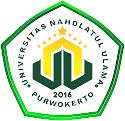HARMONISASI PEMBELAJARAN INQUIRI BIOLOGI DENGAN PRINSIP-PRINSIP KEISLAMAN
Abstract
This study examines the effectiveness of various inquiry-based learning approaches in improving student achievement and forming positive attitudes towards learning in various educational contexts. Through careful investigation and analysis, we have demonstrated the significant impact of inquiry-based learning methods on students' academic performance, especially in subjects such as mathematics, biology, and academic writing. Our findings emphasize the importance of integrating innovative pedagogical approaches, such as inquiry-based learning, into educational practice to promote deeper understanding, critical thinking, and student engagement. However, it is important to acknowledge the limitations of this study. One limitation is the relatively small sample size and the specific context in which the study is conducted, which can limit the generalisability of the findings. In addition, the study is primarily focused on quantitative analysis, and future research could benefit from incorporating qualitative methods to provide a more comprehensive understanding of the impact of inquiry-based learning. We recommend further research to explore the long-term effects of inquiry-based learning on students' academic performance and their overall learning experience. Additionally, researching the effectiveness of inquiry-based learning across different subject areas and grade levels can provide valuable insights into its applicability and potential challenges. Furthermore, examining the role of teacher training and professional development in implementing inquiry-based learning strategies is essential to ensure successful implementation and sustainable impact. In summary, the study contributes to the growing literature on inquiry-based learning and highlights its potential to improve student outcomes and transform educational practices. By addressing the identified limitations and pursuing future research directions, we can continue to improve our understanding of effective teaching and learning strategies and ultimately improve the quality of education and student success.
References
Ahmed, S., et al. (2020). Enhancing Biology Education: A Case for Inquiry-Based Learning and Islamic Values. Journal of Science Education and Technology, 29(5), 647-660.
Al-Rawi, A., & Awa, H. (2019). Integrating Islamic Principles into Inquiry-Based Learning: A Literature Review. Journal of Education and Practice, 10(4), 62-68.
Fazira, D. & Umni N.A.D.J. (2023). The development of guided-inquiry based student worksheets integrated with Islamic values on environmental pollution material. BIO-INOVED: Jurnal Biologi-Inovasi Pendidikan, 5(2), 132-143. DOI: 10.20527/bino.v5i2.16132
Fikri, A.A., Venty Z., Muhammad Y., Nilam R.A., Aprilisa R.D., Vina N.M., Lin E.F. (2023). Biologiku: Android-Based Biology Learning Media Integration of Science, Islam, and Technology. Proceeding International Conference on Religion, Science and Education (2023) 2, 699-704.
Khan, M. (2018). Islamic Education: Concept, Aims and Objectives. International Journal of Innovation, Creativity and Change, 3(1), 176-190.
Kung, H. Y. (2009). Perception or confidence? Self-concept, self-efficacy, and achievement in mathematics: A longitudinal study. Policy Futures in Education, 7(4), 387–398.
Machado, C. & Lizoon N. (2023). Influence of a Multiphase Inquiry-Based Learning Project on Students' Science Literacy. Journal of Education in Science, Environment and Health, 9(3), 206-223. DOI: 10.55549/jeseh.1331483
Manishimwe, H., William A.S., & Venuste N. (2023). Enhancing students’ achievement in biology using inquiry-based learning in Rwanda. International Journal of Evaluation and Research in Education (IJERE), 12(2), 809-817. DOI: 10.11591/ijere.v12i2.23375
Sahih Bukhari, Book 3, Hadith 50.
Sonsun, P., Chulida H., & Tawan T. (2023). Development of Science Learning Activities Using Inquiry-Based Learning Management to Improve the Academic Achievement of Secondary School Students. Journal of Education and Learning, 12(3), 86-92. DOI: 10.5539/jel.v12n3p86
Tambak, S., Mardhiyah H., Mujahid M.B. (2023). Academic Writing Skills in Islamic Higher Education: Engaging Inquiry-based Learning Methods. Jurnal Pendidikan Agama Islam, 8(1), 18-34. DOI: 10.25299/al-thariqah.2023.vol8(1).12882







